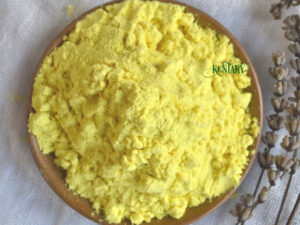Glutathione is one of the body’s most important and potent antioxidants. Antioxidants are substances that reduce oxidative stress by combating free radicals in the body.
However, glutathione levels naturally decrease with age. In fact, researchers have found links between low glutathione levels and some age-related conditions, such as glaucoma and macular degeneration.
In this article, we provide benefits of glutathione and how to increase glutathione levels
Possible benefits of glutathione
Glutathione plays several vital roles in supporting overall health. Among other things, it can:
- neutralize free radicals
- regenerate vitamins C and E
- remove mercury from the brain
- regulate cell growth and death
- maintain mitochondrial DNA
- activate antioxidant enzymes
Due to its role in preventing cellular damage, many people believe that glutathione can offer numerous health benefits. For example, it may:
- reduce inflammation and oxidative damage
- promote cardiovascular health
- slow cancer progression
- slow aging processes
- improve immune function
- prevent neurodegenerative conditions
- minimize cell damage from liver disease
- improve insulin resistance
Consume Sulfur-Rich Foods

Cauliflower is a sulfur-rich vegetable – google image
Sulfur is an important mineral that occurs naturally in some plant and protein foods.
It’s required for the structure and activity of important proteins and enzymes in the body. Notably, sulfur is required for the synthesis of glutathione .
Sulfur is found in two amino acids in food: methionine and cysteine. It’s primarily derived from dietary proteins, such as beef, fish and poultry.
However, there are vegetarian sources of sulfur as well, such as cruciferous vegetables like broccoli, Brussels sprouts, cauliflower, kale, watercress and mustard greens.
A number of human and animal studies have found that eating sulfur-rich vegetables may reduce oxidative stress by increasing glutathione levels.
Allium vegetables, including garlic, shallots and onions, also boost glutathione levels — likely due to their sulfur-containing compounds.
Try Turmeric Extract
Turmeric is a vibrant yellow-orange herb and a popular spice in Indian cuisine.
The herb has been used medicinally in India since ancient times. The medicinal properties of turmeric are likely linked to its main component, curcumin.
The curcumin content is much more concentrated in the extract form of turmeric, compared to the spice.
Numerous animal and test-tube studies have shown that turmeric and curcumin extract have the ability to increase glutathione levels.
Researchers conclude that the curcumin found in turmeric may assist in restoring adequate levels of glutathione and improve the activity of glutathione enzymes.
To experience an increase in glutathione levels, you would need to take turmeric extract, as it would be extremely difficult to consume the same levels of curcumin with turmeric spice.
Exercise Regularly
-1024x576.jpg)
Completing a combination of both cardio and circuit weight training increases glutathione – google image
Regular physical activity has long been recommended by physicians and healthcare providers. It’s no surprise that exercise is good for both your physical and mental health.
Recent research shows that exercise is also helpful in maintaining or increasing antioxidant levels, especially glutathione.
Completing a combination of both cardio and circuit weight training increases glutathione the most, compared to completing cardio or weight training alone.
However, athletes who overtrain without maintaining adequate nutrition and rest may be at risk of decreased glutathione production.
Therefore, be sure to incorporate physical activity into your regular routine in a gradual and sensible way.
Increase Your Vitamin C Intake

vitamin C may help increase glutathione levels – google image
Vitamin C is a water-soluble vitamin found in a variety of foods, particularly fruits and vegetables.
Strawberries, citrus fruits, papayas, kiwis and bell peppers are all examples of foods rich in vitamin C.
This vitamin has many functions, including working as an antioxidant to protect cells from oxidative damage. It also maintains the body’s supply of other antioxidants, including glutathione.
Researchers have discovered that vitamin C may help increase glutathione levels by attacking free radicals first, thereby sparing glutathione.
They also found that vitamin C helps reprocess glutathione by converting oxidized glutathione back to its active form .
In fact, researchers have found that taking vitamin C supplements increased glutathione levels in white blood cells in healthy adults.
Through this article, Kentary hopes you know the benefits of glutathione and how to increase glutathione levels in the body to enhance the health of yourself and your family.
Source: Healthline, Medicalnewstoday
READ MORE
- CHẾ ĐỘ ĂN UỐNG VÀ CÁC BIỆN PHÁP ĐỂ KIỂM SOÁT VIÊM DẠ DÀY VÀ GIẢM TRIỆU CHỨNG
- BẠN ĐÃ NGHE NÓI VỀ GLUTEN TRONG THỰC PHẨM?
- MỘT SỐ THÓI QUEN HÀNG NGÀY CÓ THỂ KHIẾN BẠN CÓ NGUY CƠ MẮC BỆNH TIỂU ĐƯỜNG
-
 CURCUMIN RICH TURMERIC EXTRACT POWDERVND200,000 – VND700,000
CURCUMIN RICH TURMERIC EXTRACT POWDERVND200,000 – VND700,000 -
 TURMERIC EXTRACT POWDERVND140,000 – VND500,000
TURMERIC EXTRACT POWDERVND140,000 – VND500,000 -
 FREEZE DRIED STRAWBERRYVND80,000 – VND300,000
FREEZE DRIED STRAWBERRYVND80,000 – VND300,000 -
 SOFT DRIED STRAWBERRY WITH LOW TEMPERATUREVND140,000 – VND545,000
SOFT DRIED STRAWBERRY WITH LOW TEMPERATUREVND140,000 – VND545,000 -
 SUGAR FREE SOFT – DRIED STRAWBERRYVND140,000 – VND545,000
SUGAR FREE SOFT – DRIED STRAWBERRYVND140,000 – VND545,000





